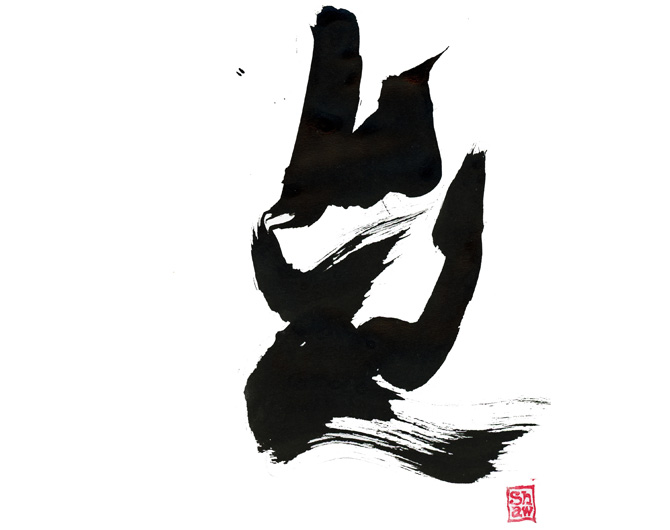The Scott Shaw Blog
Be Positive

Be Positive

In the ancient doctrines of Buddhism, (Dharmavinaya), there is no concept of sin. At least not by the standards in which it is currently defined by religions like Christianity. There is no judgmental god who will either reward a person for their good deeds or punish them for their bad actions. There is no heaven and there is no hell. This is not to say that there is no understanding about good and bad. In fact, just the opposite. Buddhism focuses its teachings on the pathway of the individual and their progression towards a higher state of consciousness; defined by the choices they make due to their personal character.
As we all understand, good is always good and bad is always bad. Throughout history, there has been ideas planted into the minds of certain individuals, at specific periods of time, where they are given the justification for doing things that are clearly understood to be negative, like the killing of other people, the taking from other people, and/or the hurting of others simply because they may be of a certain race, born from an specific ethnic makeup, or something so basic as being a person who follows a different life path than that someone else. But, no matter how one justifies evil, bad is always bad. Step back from any illusionary mindset you may find yourself embracing, and the truth of good and/or the absence thereof is obvious.
This is the basis of the understandings presented in the fundamentals of Buddhism. No grand supreme being is judging you, it is simply you who sets the standards for your life and chooses to develop the karma that will set the next stage(s) of your existence into motion and cause you to define what will occur to you in your next incarnation.
Though Siddharta Guatama, The Sakyamuni Buddha, did not teach a doctrine based upon the concept of sin, the overall teachings, presented by the Buddha, clearly laid down the foundations for how one should live their life. His teaching was based around the concept of guiding the individual to encountering their own enlightenment while creating no negative karma in the process.
As the centuries since the time of the Buddha have progressed, and various new sects of Buddhism where born, some of these schools did define the reality of what is considered good and what is considered bad, (or a sin), in order to more clearly illustrate the pathway an individual must trek if they hope to move towards an enlightened mind.
For example, from the school of Pure Land Buddhism, three physical evils were isolated and defined. They were: killing, stealing, and sexual misconduct. The four verbal evils are detailed as: lying, flattery, indiscriminate or irresponsible speech, and deformation. It is also taught that the mental evils are: anger, greed, thoughtlessness, and the holding of misguided views.
What does this teach us about Buddhism and how one should or should not encounter life? Face it, we all know what is good and we all understand what is bad. We know this when we are observing others, and we understand this when we are doing what we are doing. When we are doing something good or righteous, it’s obvious. There is none of that mental justification stuff going on like, “We are hurting them because they are a…”
This is the same when we are doing bad. You know what it is! You may not want to admit it to yourself. But, you understand what a hurtful action will equal.
If you feel good about yourself or become empowered when you are hurting that other individual, really, you need to take a long hard look at yourself. But, here lies the problem and why so few people ever encounter a life defined by higher consciousness and positive karma, they justify their actions, no matter how negative those actions may be, in their own mind.
If you are justifying your action in your own mind, if you are gaining support from unenlightened coconspirators, what does that tell you about the actions you are unleashing? The problem is, the people who operate at this level of consciousness do not possess the ability to see beyond their own momentary selfishness. They want the rush they feel in whatever moment they are living. But, that is not the road to higher consciousness! That is not the road to pure karma! All that is, becomes the road to sin.
Here's the point… There may be no true concept of sin in Buddhism. But, that does not mean that a Buddhist, or anyone other person, following any other faith, or no faith at all, cannot and does not possess the potential of creating a negative expression, leading to life damage, and thus, hurting their own chances at experiencing a better life existence now and in the future encountering nirvana.
One may not necessarily call it, “Sin.” But, as stated, we all know what is right and we all understand what is wrong. The simple equation is, if what you are doing to someone to something else, you would not want done to you, then don’t do it. It’s a simply formal. You want to be free of sin, you want to be free of negative karma, just ask yourself that question before you do anything.